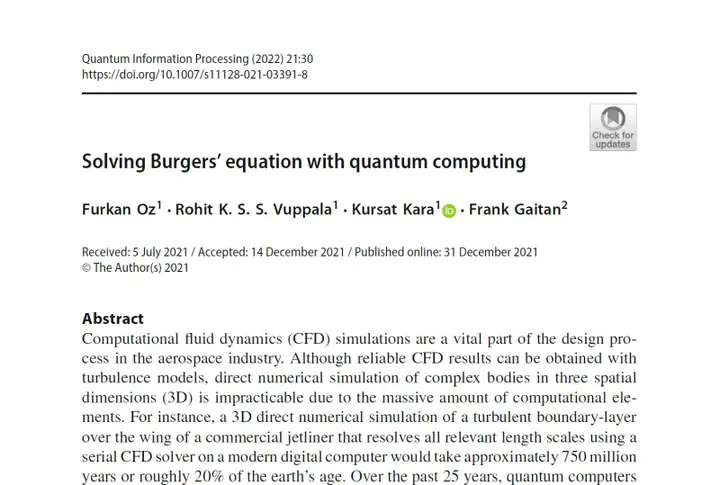
Abstract
Computational fluid dynamics (CFD) simulations are a vital part of the design process in the aerospace industry. Although reliable CFD results can be obtained with turbulence models, direct numerical simulation of complex bodies in three spatial dimensions (3D) is impracticable due to the massive amount of computational elements. For instance, a 3D direct numerical simulation of a turbulent boundary-layer over the wing of a commercial jetliner that resolves all relevant length scales using a serial CFD solver on a modern digital computer would take approximately 750 million years or roughly 20% of the earth’s age. Over the past 25 years, quantum computers have become the object of great interest worldwide as powerful quantum algorithms have been constructed for several important, computationally challenging problems that provide enormous speed-up over the best-known classical algorithms. In this paper, we adapt a recently introduced quantum algorithm for partial differential equations to Burgers’ equation and develop a quantum CFD solver that determines its solutions. We used our quantum CFD solver to verify the quantum Burgers’ equation algorithm to find the flow solution when a shockwave is and is not present. The quantum simulation results were compared to: (i) an exact analytical solution for a flow without a shockwave; and (ii) the results of a classical CFD solver for flows with and without a shockwave. Excellent agreement was found in both cases, and the error of the quantum CFD solver was comparable to that of the classical CFD solver.